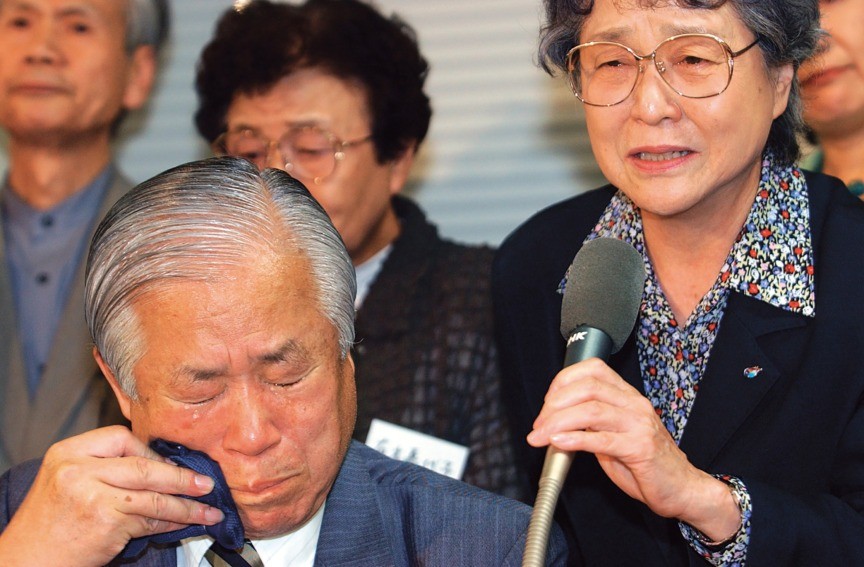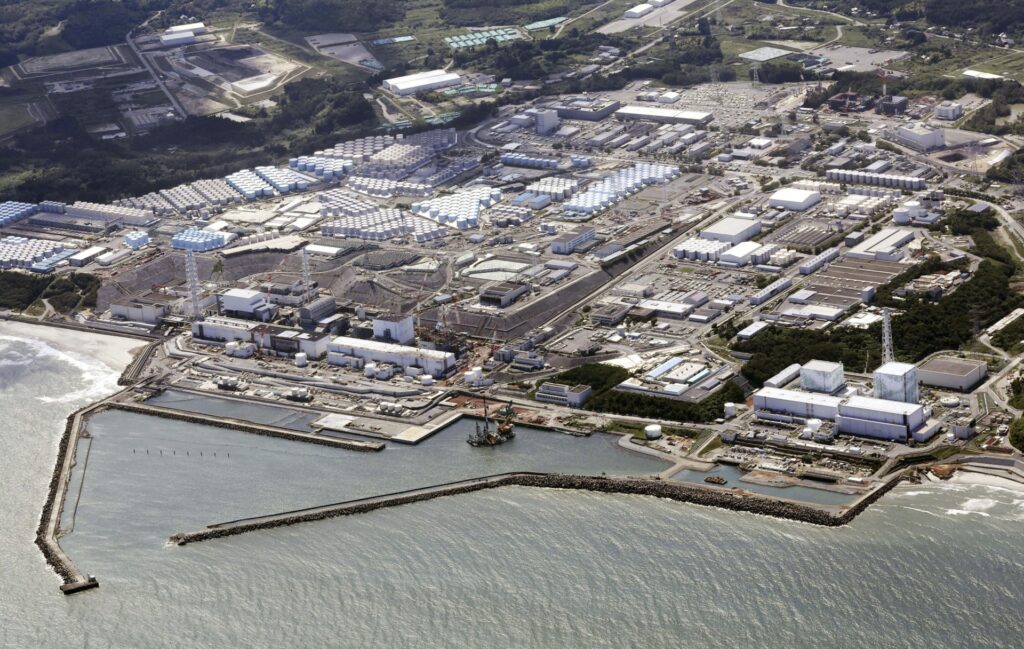North Korea on Monday lashed out at South Korea, Japan, and even its sponsor China for endorsing the denuclearization of the Korean Peninsula at a summit in Seoul.
China was less insistent on denuclearization at this weekend’s summit than it was at a similar event held in the Chinese city of Chengdu in 2019. The trilateral meeting issued a statement on Monday that emphasized disarmament and stability on the peninsula as significant for all three countries but omitted the phrase “complete denuclearization” of the Korean Peninsula, which was included in the 2019 statement.
“We reiterated positions on regional peace and stability, denuclearization of the Korean Peninsula and the abductions issue, respectively. We agree to continue to make positive efforts for the political settlement of the Korean Peninsula issue,” the new statement declared.
Shigeru Yokota, bottom left, wipes tears as he and his wife Sakie, right, speak during a press conference in Tokyo in September, 2002, after they were informed that their daughter Megumi, abducted to North Korea in the 1970s, had died. (Kyodo News via AP)
Shortly before the trilateral statement was released, Japan announced that North Korea has notified it of an upcoming “satellite launch” to occur before June 4. These launches are largely considered tests of illegal ballistic missile technology.
Japanese Prime Minister Kishida Fumio and South Korean President Yoon Suk-yeol urged North Korea to cancel the satellite launch during the summit, although Chinese Premier Li Qiang did not address it.
South Korea and Japan also managed to include commitments in the joint statement to “the purposes and principles of the Charter of the United Nations, and to an international order based on the rule of law and international law.”
Li appeared to value the summit’s commitments to economic cooperation – particularly concerning global supply chains that China fears losing due to the post-pandemic “de-risking” movement – enough to let South Korea and Japan include that language.
North Korea, on the other hand, reacted furiously on Monday morning, denouncing the trilateral summit as a “grave political provocation,” an “insult never to be pardoned,” and a “declaration of war against the Democratic People’s Republic of Korea (DPRK).” The DPRK is North Korea’s preferred name for itself.
North Korea’s foreign ministry insisted that even the weakened call for denuclearization in the 2024 summit statement was a “violation” of its sovereignty and an affront to the “unanimous will of all the Korean people.”
The summit also faced issues unrelated to North Korea. Japanese PM Kishida expressed “serious concern” about China’s military drills around Taiwan following the inauguration of Taiwanese President Lai Ching-te last week.
Japan and China also clashed over China’s ban on Japanese seafood, imposed after Japan began releasing wastewater from the Fukushima nuclear reactor in the summer of 2023.
Chinese imports of Japanese seafood plummeted to their lowest levels since the Wuhan coronavirus pandemic following the ban. China announced it would review the ban at the Asia-Pacific Economic Cooperation (APEC) meeting in November, but it remains in place.
This aerial view shows the Fukushima Daiichi nuclear power plant in Fukushima, northern Japan, on Aug. 24, 2023, shortly after its operator Tokyo Electric Power Company Holdings TEPCO began releasing its first batch of treated radioactive water into the Pacific Ocean. (Kyodo News via AP, File)
At the trilateral summit in Seoul, Kishida again requested Li to lift the ban, but Li maintained that China still views the wastewater from Fukushima as “nuclear-contaminated.” He urged Japan to “earnestly fulfill its responsibilities and obligations” on the Fukushima issue, despite international agencies affirming the safety and necessity of Japan’s wastewater release plan.
The South China Morning Post (SCMP) on Monday doubted the issue would be resolved soon because Japan is reluctant to make significant concessions on other matters, which would enable China to withdraw from its previous statements on the seafood issue without appearing weak.
Japan, conversely, believes that giving in to some of China’s demands would make Tokyo appear weak and that China would simply create new unreasonable demands even if Japan yielded.
“We feel no will on the Chinese side to make progress on the issue of treated water,” a Japanese official told the SCMP.






